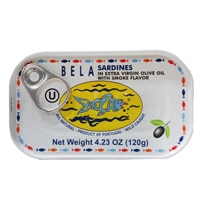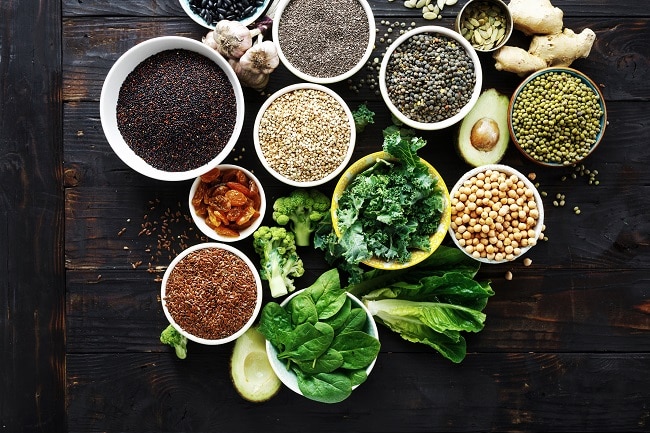If your calcium go-to is milk or cheese, you're missing out. Dairy products have calcium, sure, but they also can have stuff you might not want: fat, lactose, casein. Plus they lack the fiber and phytochemicals many non-dairy sources have.
Adults need 1,000 milligrams of calcium a day, according to the National Institutes of Health. The level bumps to 1,200 for women over 50 and men over 70. Your bones aren't the only part of your body that appreciates the mineral. Your nerves and muscles rely on it, to name just two. Bones store calcium until other parts of the body need it.
Of the dozens of micronutrients food offers, calcium is one of just four that the U.S. Food and Drug Administration requires in those iconic nutrition boxes. It's been there for ages and the agency kept it for new rules that go into effect by 2021—and swapped in vitamin D, also key for your bones, as you'll read in a moment. In other words, calcium is important, though the World Health Organization recommends far less: 500 mg a day.
You need more than calcium to do much of anything with the mineral, namely vitamin D and magnesium. Vitamin D allows your body to absorb and make use of calcium. It also transports calcium from your blood to your bones. The best way to get vitamin D is to bathe your skin in sunlight sans sunscreen for about 10 to 15 minutes a few times a week—your body actually produces vitamin D this way. As for magnesium, it helps convert vitamin D from the few foods that have it (sardines, eggs, anything fortified with it) into its active form. Pumpkin seeds are a great source.
It's possible to lose calcium in your urine, if you overdo protein and most of it comes from animal sources. Same goes for sodium. Be sure to keep intake under the recommended 2,300 mg a day; much lower is better. Alcohol and caffeine also can draw out calcium.
Below are key non-dairy foods that inherently offer calcium. You can, of course, find calcium in any edible fortified with it, from cereal to juice. For comparison, a cup of milk or yogurt offers about 300 mg, 25-30 percent of federal recommendations.
1. Beans, especially white
One cup of cooked white beans has 191 mg of calcium. Beans in general are packed with fiber and lots of micronutrients. They're also a great way to get protein and carbs in one fell swoop.
“While beans and greens have less calcium per serving than dairy products, the calcium absorption is up to two times as high such that a cup of cooked kale offers the same amount of calcium to the body as a cup of cow's milk,” says Amy Joy Lanou, PhD, chair and professor of health and wellness for the University of North Carolina Asheville and co-author of Building Bone Vitality. It's not entirely clear why this is the case, Lanou says. “Some nutrients found in higher amounts in foods from plant sources have been shown to increase calcium absorption, including vitamin C, vitamin E, vitamin K and magnesium.”
2. Broccoli
Broccoli's rich calcium and magnesium content are another reason to eat this workhorse of a vegetable. One cup of cooked broccoli has 80 mg of calcium, plus magnesium. To boot, it has fiber and potassium, along with other good stuff.
3. Kale
The accolades this leafy green has accumulated are ridiculous. Here's another. One cup of cooked kale has 94 mg of calcium, plus magnesium. Lots of leafy greens have calcium, but they aren't interchangeable when it comes to getting that calcium into you. Spinach is one example. It has calcium, but you probably won't end up with much of it. Ditto for chard and beet greens (beets and rhubarb too). “They are high in oxalates, which bind to calcium and make it more difficult to absorb,” Lanou says.
What's more, calcium can inhibit absorption of iron, spinach's hallmark. (Although pairing foods high in oxalic acid with those high in calcium can apparently keep away kidney stones.)
4. Sardines
They might be a hard sell, but sardines are packed with nutrition. The small fish's soft, edible bones deserve much credit for the calcium. Sardines usually come in little peel-top containers, which work as a serving of about 2.5 ounces. One can delivers about 220 mg of calcium, along with magnesium and vitamin D. Plus about 17 grams of protein, and omega-3s to make your joints happy.
5. Seeds, especially sesame
Lots of bang for your buck here. Two tablespoons of sesame seeds have about 176 mg of calcium. Bonus: They have mono- and polyunsaturad fats, which are good for your heart.
It's also worth noting...
If we're just talking bone health, at least a dozen other micronutrients are important, but don't get caught up in specifics; eat healthfully instead. Exercise though. Calcium and its aforementioned cohorts won't help your bones nearly as much if you're sedentary.
Got dairy-free milk? No? Make your own! Here are 6 Dairy-Free Milk Substitutes & Recipes for you to try.
Journalist and yoga teacher Mitra Malek regularly creates content for wellness-focused outlets, including Yoga Journal, where she was an editor. Learn more at mitramalek.com.




